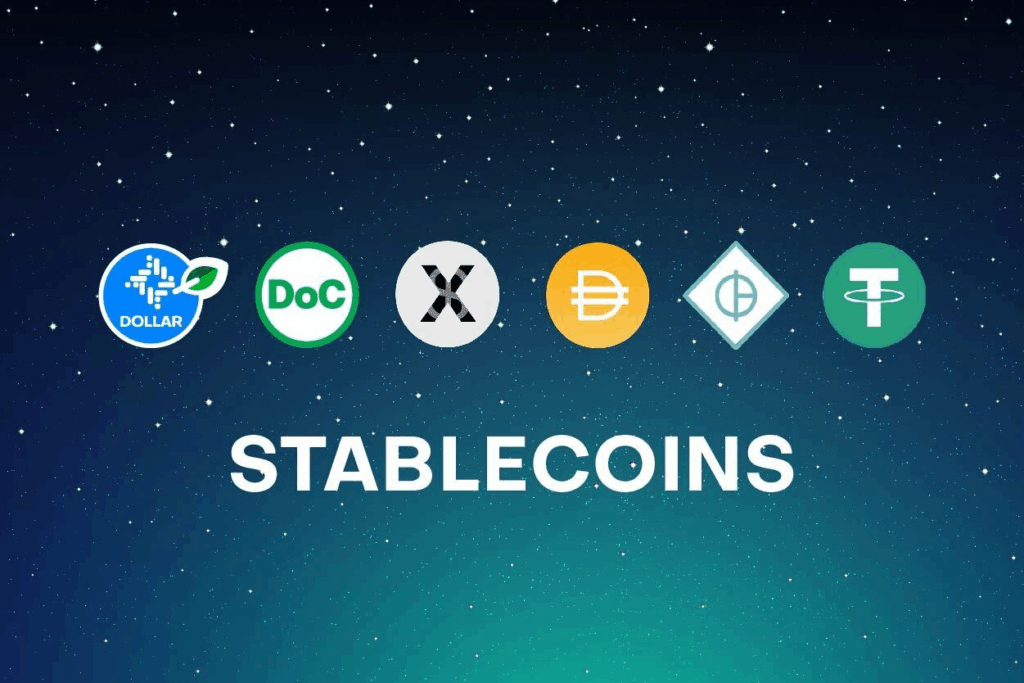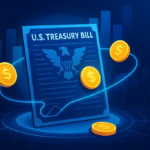In this piece, I will discuss the Can You Buy Real Estate With Stablecoins in 2025 With the growing popularity of stablecoins such as USDT and USDC, a growing number of investors are looking into buying properties through cryptocurrency.
We will analyze the legal framework surrounding such transactions, their operational mechanics, as well as what risks and gaps there are in this dynamic blend of cryptocurrency and real estate.
What is Stablecoins?
Stablecoins are a subclass of cryptocurrency whose primary purpose is to keep a steady price equivalent to a defined real-world assets like the US dollar, euro, or even gold.

Unlike unstable cryptocurrencies, like Bitcoin or Ether, stablecoins focus on maintaining consistency in price, thus, making it easier to use for daily purchases, and even for savings. Some of the most well-known are USDT (Tether), USDC (USD Coin), and DAI.
Stablecoins are being accepted for payment in multiple online businesses and are even proving to be useful for real estate transactions, which is making them more popular for their reliability, transparency, and quick settlement times.
Can You Buy Real Estate With Stablecoins in 2025

Sure, stablecoins can be used to purchase real estate in 2025, but that is subject to the specific laws of the merchant’s country and seller’s acceptance.
The purchase of real estate using stablecoins is accepted in some jurisdictions such as the US, the UAE, and some parts of Europe, often executed through crypto escrow accounts, and tokenized real estate platforms which support USDT and USDC stablecoins.
On the other hand, buyers need to perform KYC, AML, tax compliance, and ensure the transaction is legal in the applicable jurisdiction. While feasible, transactions involving stablecoins and real estate demand a robust legal framework.
Loopholes and Legal Grey Areas
Creation of Offshore SPV Companies
Purchasers try to evade the crypto to fiat conversion in their country by creating offshore companies or Special Purpose Vehicles (SPVs) to buy the concerned property.
Crypto Escrow Services
Deal finalization by means of crypto escrow services allows for the circumvention of conventional banking services and helps to peer-to-peer payment systems above fiat reporting limits.
Real Estate Tokenization
Real estate contracts are transformed into blockchain tokens and sold as “digital assets.” This procedure allows avoidance of real estate regulations in some jurisdictions.
Buying or Selling Property Using Other Stablecoins
El Salvador and UAE are known for their relaxed crypto regulations. Their relatively more relaxed crypto laws are used to buy or sell property using other stablecoins.
Decentralized Autonomous Organization (DAO) Ownership Structures
Stablecoins are used to collectively purchase real estate by Decentralized Autonomous Organizations which gives rise to legal questions of ownership and liability.
Exempt Tax Reporting Through Stablecoin Swaps
Tax reporting obligations are avoided by an exchange of stablecoins like DAI for USDT which is executed in some contracts.
Contracts Without Formal Legal Approval
The contracts are completed without full legal scrutiny risking the ability to enforce the contract in various jurisdictions.
Unregulated Escrow Wallets
Buyers and sellers have the option of using crypto wallets or exchanges which are not subject to the restrictions governing banking and real estate industries.
Risks and Challenges
Regulatory Uncertainty
Legislation on crypto and real estate transactions differs from one country to another. Within one jurisdiction, the law may alter the framework of the transaction mid-course, introducing a layer of precariousness to the deal.
Tax Reporting Issues
Failing to accurately disclose crypto transactions or asset valuations can lead to tax audits. Even within the realm of taxes, reporting inconsistencies can have dire consequences ranging from monetary fines to incarceration.
Smart Contract System Weaknesses
Non-traditional legal documents, which are in the form of blockchains, might contain defects that, once triggered, can lead to the loss of digital currency or other assets.
Legal Gray Areas
Stablecoin transaction of real estate properties and the subsequent tokenization of assets may not be accepted in some jurisdictions.
Access to Banking and Fiat Systems
For peripheral expenditures relating to the property, such as paying taxes, executing repairs, or taking loans, the conversion of stablecoins to fiat might be practically impossible due to banking limits.
Challenges of Unrestricted Property Transactions
Overseas transactions and those that utilize a decentralized framework might circumvent jurisdictional limits, but are beyond the reach of conventional law. As such, verifying liens and legitimacy of a property as well as establishing ownership can become enormously complicated.
Counterparty Liability
In peer-to-peer transactions, dealing with a nameless seller, platform, or escrow service can bring to the table fraud and litigation risks that overshadow potential rewards.
Government Action
If stablecoin transactions or tokenized assets are viewed as illicit, subsequent legislation could impose retroactive punishments.
Expert Insights and Predictions
In 2025, specialists forecast purchasing real estate using stablecoins will increase, yet remain a small segment of the market because of complicated regulations.
Analysts point out USDC and USDT as primary candidates due to their stability and quick transaction times. Lawyers underscore the significance of compliant frameworks, particularly when crossing borders.
While purchases via DAOs and tokenized assets are gaining popularity, they are mostly unregulated.
In the view of specialists, there is a global post-2025 expectation that regulations will be stricter, encouraging buyers to acquire specialized legal advice before participating in real estate transactions using stablecoins.
Conclusion
To wrap up, purchasing real estate through the use of stablecoins in 2025 is not only feasible, but also becoming more accessible, primarily in regions that embrace cryptocurrency.
The rapid growth of tokenized real estate, cryptocurrency escrow accounts, and the international use of stablecoins like USDT and USDC in real estate transactions is making them more efficient and less restricted by borders.
On the other hand, the legal framework, taxation, and regulations still pose considerable hurdles. Compliance is essential, legal counsel is mandatory, and changing regulations require constant monitoring, making the transaction safe and legally stable for the buyer.
FAQ
Can I legally buy property using stablecoins like USDT or USDC in 2025?
Yes, in many jurisdictions such as the USA, UAE, Switzerland, and El Salvador, stablecoin property purchases are legal if compliant with KYC, AML, and tax regulations.
Do I need to convert stablecoins into fiat to buy real estate?
Not always. Some sellers and platforms accept direct stablecoin payments, while others may require conversion via escrow or crypto payment processors.
Is tokenized real estate the same as owning property?
Not exactly. Tokenized real estate often represents fractional ownership or shares in an entity that owns the property. Legal recognition varies by country.








